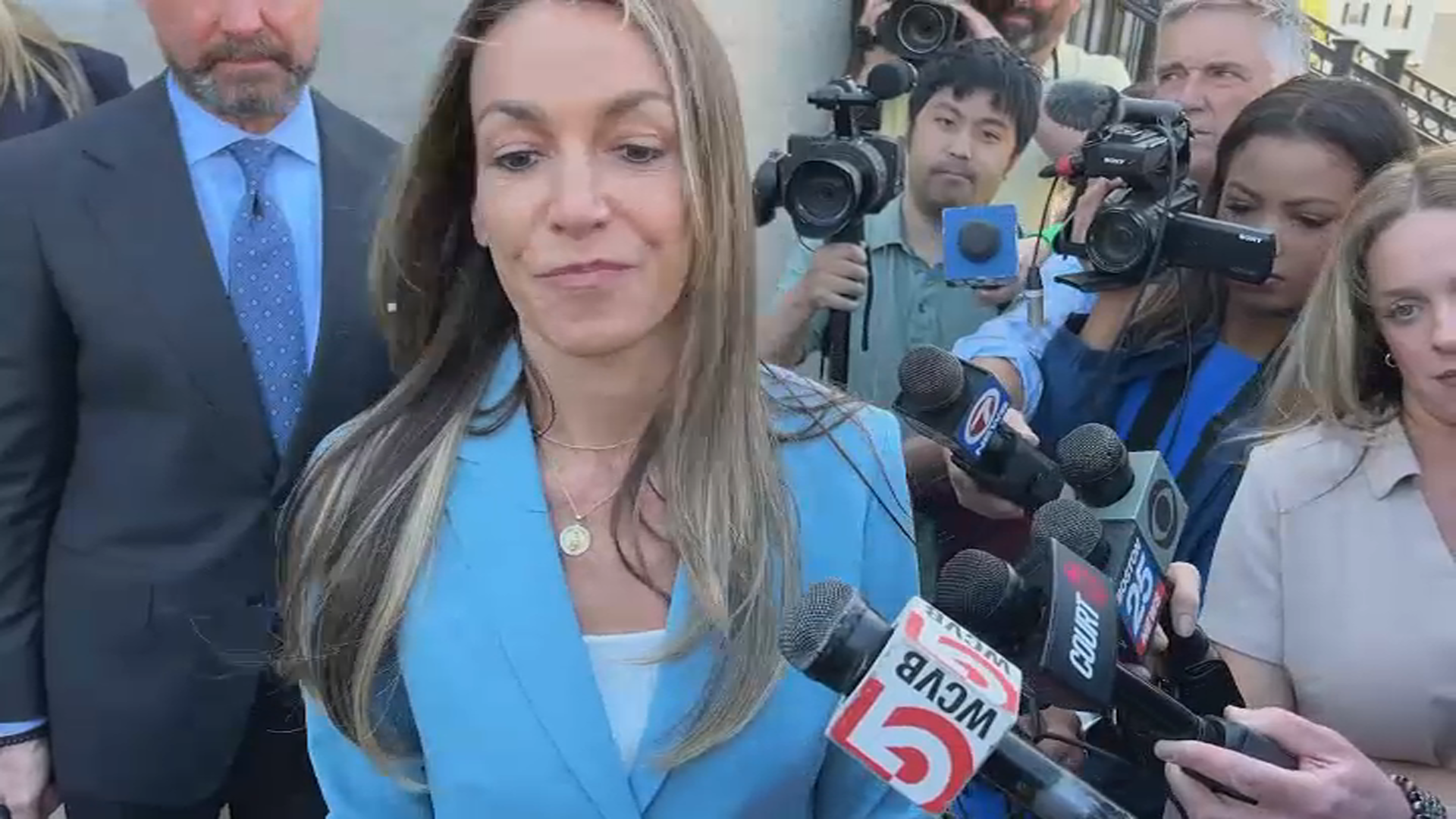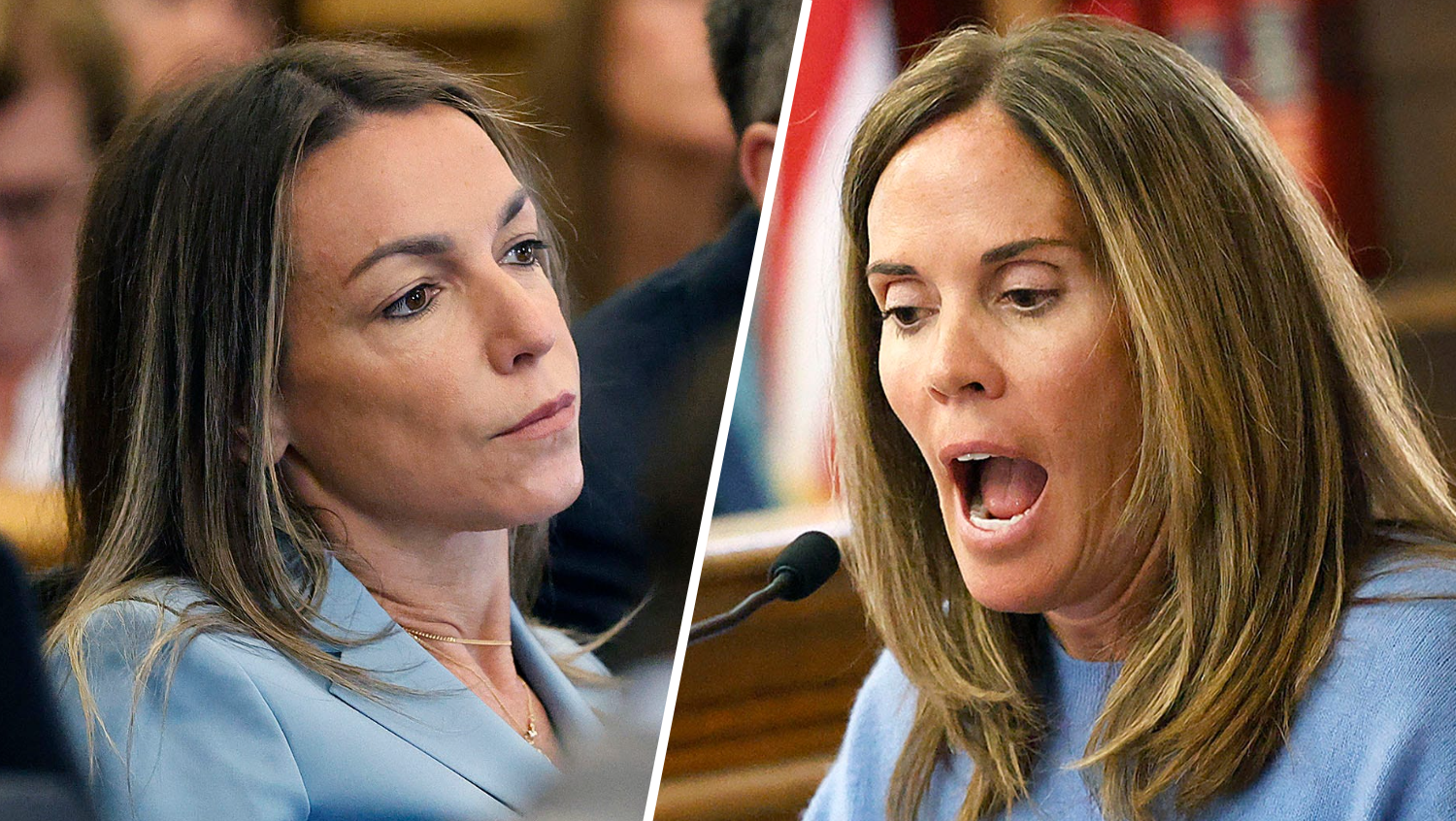
Massachusetts Senate President Karen Spilka speaks at the State House on Tuesday, Sept. 26, 2023, as Democratic lawmakers unveiled a plan to provide tax relief.
The compromise tax reform package expected to win House and Senate approval this week combines relief for Massachusetts seniors, renters, caregivers and low-income families with a cut to the state's short-term capital gains tax rate, estate tax reforms and changes to a pair of voter-approved tax policies that have been in the spotlight.
A six-member conference committee filed its accord (H 4104) at 2:32 p.m. It would provide about $561 million in relief in the current fiscal year, which began July 1, and more than $1 billion in relief by fiscal year 2027, according to official summaries acquired by the News Service.
Stream NBC10 Boston news for free, 24/7, wherever you are.
The final deal caps off more than a year and a half of debate and takes aim at a pair of issues that have been top of mind for policymakers: the increasingly unaffordable cost of living here, and a growing fear that Massachusetts is not competitive enough to attract the businesses and workers its economy needs.
The package's largest item, worth about $165 million this year and up to $307 million once fully implemented, is an overhauled child and dependent tax credit.
Get updates on what's happening in Boston to your inbox with our News Headlines newsletter.
In an attempt to relieve some of the pressure on individual taxpayers, the package would more than double the state's child and dependent tax credit. That credit would rise from $180 to $310 in fiscal year 2023, then again to $440 in fiscal years 2024 and beyond.
More than 565,000 Massachusetts families would qualify for the credit, according to a bill summary, which described it as "the most generous universal child and dependent tax credit in the country."
Other family-focused pieces of the final package revive measures both branches initially approved last year, before lawmakers retreated from targeted tax relief after realizing state tax collections had surged so high that the state owed nearly $3 billion in automatic taxpayer rebates.
Local
In-depth news coverage of the Greater Boston and New England area.
The bill would increase the Earned Income Tax Credit that supports lower-income families from 30 percent to 40 percent of the federal credit, double and index to inflation the maximum senior circuit breaker tax credit, and increase the cap on the rental deduction from $3,000 to $4,000, according to the summary.
Negotiators included most of the tax code changes sought by business groups that were pitched as a way to reinvigorate the state's competitiveness, particularly at a time when officials are concerned about a flow of residents decamping to states that are more affordable to live in.
The bill would provide a uniform estate tax credit of $99,600, which would effectively double the threshold at which the levy kicks in from $1 million to $2 million. Supporters have said the existing trigger is among the lowest in the country, making Massachusetts an outlier.
That change would cost $128 million in FY24 and $213 million by FY27, according to the summary.
The accord would also slash the tax rate on short-term capital gains, which stem from the sale of assets held for a year or less, from 12 percent to 8.5 percent. Democrats had been divided on how to approach that reform, with the House originally supporting an eventual reduction to 5 percent and the Senate preferring not to touch the existing 12 percent rate.
A cost breakdown estimated the short-term capital gains tax cut will carry a total price tag of $42 million in FY24 and $49 million in FY27.
Another change aimed at businesses would overhaul how Massachusetts calculates taxes owed by multistate companies. Currently, the apportionment system factors in property, payroll and sales, and the bill would replace that with a simplified version that uses only a company's sales. Supporters have suggested the update would encourage more companies to base their headquarters in Massachusetts.
While they move to reduce the tax burden many residents and businesses face, Democrats will also embark on a potentially controversial effort to reshape a pair of voter-approved tax laws.
The conference committee accord would change Chapter 62F, the 1986 initiative petition law that caps the amount of tax revenue state government can collect each year and requires taxpayers to be reimbursed for any overage.
Under the current iteration of the law, Massachusetts must return excess tax revenue in proportion to what each taxpayer paid. Last year, when Beacon Hill owed nearly $3 billion back to residents, the highest-earning Bay Staters got rebate checks for thousands or tens of thousands of dollars and lower-earning taxpayers received a few hundred dollars or less.
The bill would replace the proportional system with an equal payment for every single taxpayer if Chapter 62F were triggered again, regardless of how much they paid in taxes that year.
It would also require married taxpayers who file a joint return with the federal government to file a joint return at the state level as well.
Lawmakers and their allies who backed the new 4 percent surtax on personal income above $1 million, which voters approved in November, have warned that married couples who together earn more than $1 million could avoid triggering the surtax by filing individual returns. The Massachusetts Budget and Policy Center estimated that high-income households using that maneuver could cut the state's annual surtax revenue between $200 million and $600 million.
The bill summary said the joint-filing requirement would be "subject to exemptions or adjustments promulgated by the department of revenue."
Other changes in the compromise bill aim to incentivize new housing production by expanding the Housing Development Incentive Program, which would rise from $10 million to $57 million in the first year and then settle at $30 million annually thereafter, and increasing the annual authorization for the Low Income Housing Tax Credit from $40 million to $60 million.



